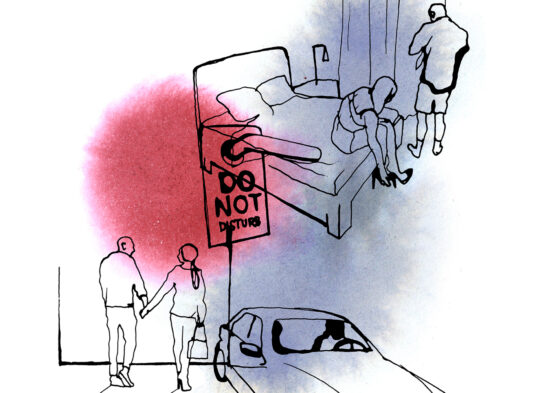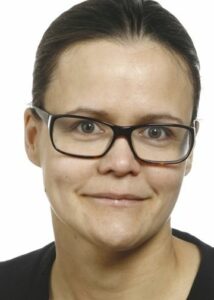Results from the project
The ‘CSR facade’ of the hospitality industry: The importance of social responsibility in fighting sex trafficking and illegal sex purchases in hotels
BFUF Rapport #22 Sexhandel – Hur besöksnäring kan motverka prostitution och sextrafficking
Employee perspectives on sex trafficking in Swedish chain hotels
BFUF Play
Susanna Heldt Cassel, Professor in Cultural Geography, Dalarna University
What is the research project about?
“Today, one in every four Swedish incidents of paying for sex takes place in a hotel and many of those forced to sell sex are also a victim of human trafficking. This is a problem for the hospitality sector on the whole and not least a working environment issue for those employed by a hotel who come across these incidents in their daily working life. We will investigate which attitudes and strategies exist with the employees to address and work against prostitution and trafficking.”
What will you do?
“Firstly, we will identify existing research. We know that it’s not extensive and that there has never been any previous Swedish study on trafficking in respect of the hospitality sector. We look on our project as an important starting point in research into this area in general and our aim is to identify important research issues to proceed with. After this, we will be undertaking studies at hotels where we will interview employees. As the questions may be of a sensitive nature to talk about, we will be using both focus groups and individual interviews.”
How do you select which hotels are to be studied?
“Certain international research indicates that the problem is associated with business tourism and larger events. Therefore, we will be choosing hotels at several locations in central Sweden where this occurs. The first interviews will be with the police and social services attached to various district councils to find out if there actually is a problem and, if so, how big it is. After that, we will go on and select hotels in the area which may be relevant to the study.”
Why is this important to the hospitality sector?
“The aim is to raise issues for broader discussion and as an issue of the working environment. These crimes don’t just have an effect on those directly affected, they also have an effect on those indirectly affected through their work at a hotel. Employers must not only understand their responsibility in working against trafficking but they must also take responsibility for the working environment in relation to an employee’s exposure psychologically. Several organisations with interests in this sector are working on this today and there is an amount of cooperation and various types of certificates. Many hotels have also developed strategies on how they are to address prostitution and trafficking. But it is mainly the larger hotels and chains in larger towns which have acted on this. We believe that awareness is not as great across the whole of the sector or the country. Our aim is to generate fresh awareness which the sector will derive benefit from in their work on this issue.”
What are the greatest challenges facing you?
“Many people feel that it’s difficult to talk about these issues, therefore we will start on the basis that this is a working environment issue and not approach the criminal aspect. Research ethics and sensitivity to proceeding with care are very important. We will be particularly careful as regards anonymity and we will not be publishing where the interviews were conducted.”
BFUF have another research project underway within the same field. How will you collaborate?
“We are approaching the issue from different angles. Our project is looking at the issue from the employee’s perspective while researchers from KTH (the Royal Institute of Technology, Stockholm) in the project ‘Promoting a hospitality industry free from human trafficking and prostitution’ are studying the issue from a more defined employer perspective on the premise of being a good employer (social responsibility). We therefore have a great deal to learn from each other. Both of us will benefit from the literature review and we have discussed cooperation in the form of scientific articles. As with the other research project, we have established contact with the non-profit organisation Real Stars which works against trafficking.”
Researchers
Maria Thulemark, Doctor in Cultural Geography, Dalarna University
Susanna Heldt Cassel, Professor in Cultural Geography, Dalarna University
Project facts
Project
No room for trafficking – hotel employees’ strategies to address and work against prostitution and human trafficking
Research organization
Dalarna University
Project Manager
Maria Thulemark
Period
2020 Jan – 2021 Jun
Amount
SEK 500,000





